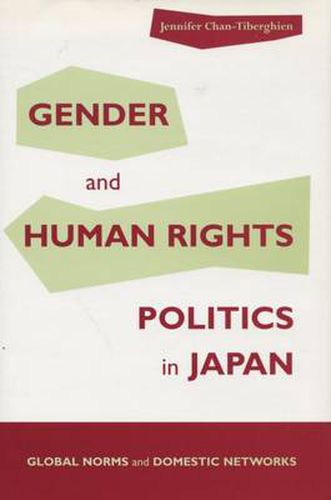Readings Newsletter
Become a Readings Member to make your shopping experience even easier.
Sign in or sign up for free!
You’re not far away from qualifying for FREE standard shipping within Australia
You’ve qualified for FREE standard shipping within Australia
The cart is loading…






The main purpose of this book is to revisit prevailing conceptions of the Japanese state - which tend to focus on bureaucratic dominance, party politics, and interest groups - and argue that these institutions cannot explain the extensive legal and political changes concerning women’s and children’s human rights since the late 1990s. Instead, the author advances a constructivist approach to examine the impact of global human rights norms on Japan. This approach is exceptional in linking gender, children, and minority rights to Japanese norms. This book offers an up-to-date account of the changes since the 1990s. It also explores the issue of universalism versus cultural relativism within human rights and feminist debates. Instead of assuming that traditional Japanese culture is at odds with the individualistic and legalistic orientation of international human rights standards, the book discusses how Japanese civil society as well as state actors grapple with the rise of the individual, the new salience of law in resolving conflicts, the emergence of horizontal networks of cooperation, and the practice of postnational citizenship.
$9.00 standard shipping within Australia
FREE standard shipping within Australia for orders over $100.00
Express & International shipping calculated at checkout
The main purpose of this book is to revisit prevailing conceptions of the Japanese state - which tend to focus on bureaucratic dominance, party politics, and interest groups - and argue that these institutions cannot explain the extensive legal and political changes concerning women’s and children’s human rights since the late 1990s. Instead, the author advances a constructivist approach to examine the impact of global human rights norms on Japan. This approach is exceptional in linking gender, children, and minority rights to Japanese norms. This book offers an up-to-date account of the changes since the 1990s. It also explores the issue of universalism versus cultural relativism within human rights and feminist debates. Instead of assuming that traditional Japanese culture is at odds with the individualistic and legalistic orientation of international human rights standards, the book discusses how Japanese civil society as well as state actors grapple with the rise of the individual, the new salience of law in resolving conflicts, the emergence of horizontal networks of cooperation, and the practice of postnational citizenship.